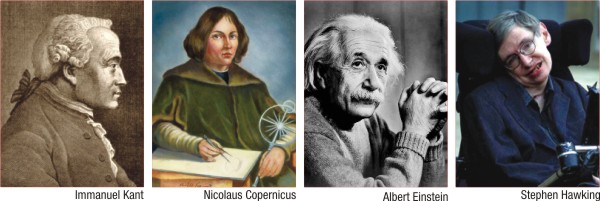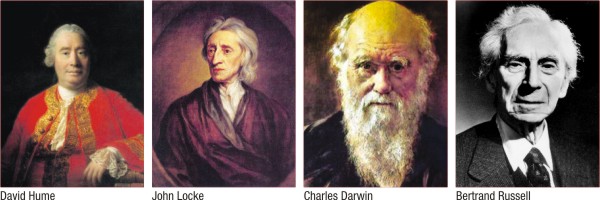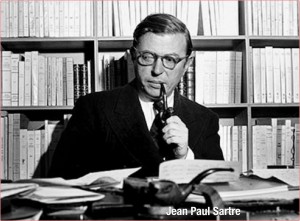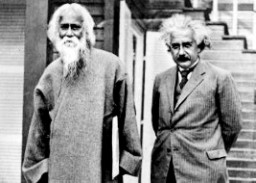| Spotlight
The World of Science and Philosophy
Professor Dr.M.Shamsher Ali

In the twenty first century, Science and Philosophy have become almost inseparable. Science gives us the laws of governance of matter both on the macroscopic as well as on the microscopic scale. Science has unravelled the laws of the large and the laws of the small. Philosophy gives us directions in which these laws have to be applied; philosophy also gives directions in which life has to be lived. Both science and philosophy are necessary in order to understand how inert and living matter behave and also the role of man in safeguarding the intricate working of nature as well as of the human mind.
Gone are the days when a philosopher was thought to be someone who forgot everything about himself and only wondered about life, society, and the universe. On the other hand, the scientist was thought to be someone confined to the environment of the laboratory irrespective of the happenings in life and environment. The situation has changed today. Today's philosophers are much more practical and today's scientists are much smarter. Both groups are socially conscious.
In the beginning, there was only philosophy, which was dominated by ideas and surmises. Matter was looked at and ideas were put forward as to their ultimate constitution. In these early days, when Greek philosophers reigned supreme there was no formal methodology for the analysis of matter. Science gave rise to an accepted methodology for the understanding of different forms of matter and their interactions.
And it was exactly then that philosophy became distant from science. The experimental method of verifying facts became very specific to science. The discovery of this experimental method is accredited to the Arabs, who refused to accept any theory without experimental vindication of it. An example may make it clear. Many philosophers including the famous geometer Euclid thought that the sensation of seeing an object is produced when light emanates from the eye and falls on the object. Ibn-al- Haytham, who is called the father of optics, refuted this and made experiments himself; he showed that light from an object falls on the eye and produces an image in “Camera Obscura”. This image is an inverted image and the optic nerve sends a signal to the brain which corrects it and we see the objects as they are. Many historians believe that the establishment of the scientific method (which is indicated in the word “Calibration” which is derived from the Arabic root “Qalib”, meaning “Standard mould or shape”). was the greatest contribution of the Arabs to the growth of modern day science.
In the twentieth century however, this insistence on experimental verification of fails when the laws of the small (known as quantum mechanics) became very different from the laws of the large. In the world of the small, seeing is not believing. On small scales, seeing assumes a different meaning. Why can we see an elephant but not an atom? The reason is that we can see a thing only when light can be scattered from it. The light that produces the sense of vision is visible light having a wave length of a few thousand Angstroms (one Angstrom is ten crores smaller than a centimeter). The size of elephants is of the order of meters, so visible light can easily be scattered from any part of the elephant's body and so we have no problem in seeing it.
But when the same visible light (having a wave length one lakh smaller than a centimeter) falls on atom, it cannot be scattered from the atom as it is much larger than the size of the atom (which is of the order Angstroms) and engulfs the atom completely. Thus, no light is scattered and we cannot see the atom. There is a way, however, of seeing the atom. We can employ very energetic gamma rays, whose wave length is a hundred thousand times smaller than the atom, and therefore can be scattered from the atom; the scattering can be verified by a detector (gamma rays do not produce the sensation of sight), which gives information about the location of the atom. However, this location is not correct. The gamma rays are so energetic that they change the position and momentum of the atom. Thus, if the atom is really in a position x, and its momentum is p, then the measurement through gamma scattering gives an uncertainty of amounts Äx and Äp in position and momentum respectively of the atom. But there is a method behind the madness. The product of these uncertainties is a constant called Plank's Constant. This is the famous uncertainly principle discovered by Heisenberg and this has a deep philosophical significance of it's own, which is namely that no matter how accurately we want to observe an ultimate constituent of matter, we cannot trace it's exact history. We can make predictions about it which are probabilistic in nature and are not at all deterministic. Thus, when we come to the world of the small, we have to sacrifice the principle of determinism and rest content with an apparent truth. We see appearances, but behind these appearances remain the thing in itself. This is something philosophers have been telling us for ages about the apparent truth and the hidden truth.
Another jolt in the thinking of both scientists and philosophers came in the twentieth century with the advent of the theory of relativity advanced by Einstein. Space and time had been thought for long to be absolute. Einstein showed that moving clocks run slow and moving rods get contracted. The relativistic effects become appreciable when the speeds of objects are at least more than 10% of the velocity of light. We and our planet do not experience such speeds. Electrons inside atoms can; thus, relativistic modifications of Newton's Laws (for objects moving at great speeds) and for motions of microscopic particles obeying quantum mechanics have to be introduced with consequent changes in our world view of the universe.
Philosophers have had no problem in reconciling themselves with this new world view; however, they have a genuine concern about the applications of science.
The mass-energy relationship has been used in making nuclear bombs and detonating them over human beings. The same relationship can be used in nuclear reactors for the production of electricity. The indiscriminate applications of scientific principles have given rise to serious fears and apprehensions in the minds of philosophers about the irresponsibility of scientists. They cannot be blamed for this. Besides the seeking of truth, philosophers do care for beauty, love, and fraternity of mankind, and also care for the existence of all forms of life (an idea that has given rise to the concept of eco-philosophy). Science has advanced tremendously over the last few decades giving rise to digital technologies for the creation of the Information Superhighway and a Globalized World, and also has paved the way for new applications of nanotechnology and biotechnology. Expeditions into outer space have also paid good dividends. Again, philosophers have no anxieties behind these applications, but their real anxiety is, “Will these be used globally for all mankind, or only selectively for a section of it?” Should our lifestyles be heavily consumer oriented and irreversibly unsustainable so as to bring colossal damage to the thirty million life forms whose existence is finely tuned with ours?
In conclusion, it must be said that we have only one planet to live on. The scientific developments should not take away from us our morality and the milk of human kindness which have bound us together on this planet. Thus, in the twenty first century, we are at a critical crossroads in history where philosophers and scientists should work in tandem. Science should give us new materials, new energies, new medicines, alright, but we must be dictated by the cardinal principles of philosophy giving meaningful directions to us to love each other and to live in peace and harmony with Nature.
[The Author: Professor Dr.M.Shamsher Ali, Vice Chancellor, Southeast University and President, Bangladesh Academy of Sciences and former Vice Chancellor, Bangladesh Open University]

Science and Philosophy
Perennial Search for Truth
The sciences are the windows through which philosophy views the world --Will Durant
Dr Binoy Barman
 Science and philosophy are two disciplines which aim at finding truths, one in physical world and the other in metaphysical world. There is no contradiction between the two; rather there is a seamless interface which makes them complimentary to each other. The difference between science and philosophy is that, whereas the scientist investigates an actual occurrence, the philosopher investigates a concept, which occurs in his mind independent of scientific discovery. Claims in philosophy attain more acceptability when philosophical investigation follows scientific method, and claims in science are more prestigious when scientific investigation is based on sound philosophy. Science provides reliable explanations of how nature and life came to be, how they work, what they are made of and what will become of them. Philosophy also takes interest in these questions, but in addition it attempts to provide the answer of 'why'. Their interests overlap and corroborate. Science and philosophy are two disciplines which aim at finding truths, one in physical world and the other in metaphysical world. There is no contradiction between the two; rather there is a seamless interface which makes them complimentary to each other. The difference between science and philosophy is that, whereas the scientist investigates an actual occurrence, the philosopher investigates a concept, which occurs in his mind independent of scientific discovery. Claims in philosophy attain more acceptability when philosophical investigation follows scientific method, and claims in science are more prestigious when scientific investigation is based on sound philosophy. Science provides reliable explanations of how nature and life came to be, how they work, what they are made of and what will become of them. Philosophy also takes interest in these questions, but in addition it attempts to provide the answer of 'why'. Their interests overlap and corroborate.
The basic human instinct is naturally scientific, that is moving for a scientific explanation of anything they come across. The initial search for explanation of natural phenomena in the primitive world gave rise to mythology, which seeks intervention of supernatural power of deities. But mythological explanation could not satisfy all, especially the wiser section of society, as the deities were not visible and could not be communicated. So people looked from heaven to earth and attempted to explain events invoking the natural laws, which took the shape of philosophy. The philosophical vision in later periods paved the way for science, which demanded verification of all claims made by thinking minds.
Science initially collected vigour from philosophy. As science developed into an independent and powerful discipline, philosophy also borrowed insight from it and enriched itself. So science and philosophy are indebted to each other for their birth and development. Philosophy is possible because there is scientific inclination in human beings nourished by the curiosity of mind; and science is possible because human beings have a philosophical bent of mind, which becomes evident in their constant search for knowledge through question and answer.
The ancient Greeks knew well how to ask questions and find answer for them. That's why philosophy and science took birth in Greece. The ancient Greece initiated science with the discipline of cosmology and commenced philosophy with the discipline of ontology. The Greeks developed the principles of materialism and naturalism in science and philosophy. They attained tremendous achievements in logic and mathematics. They sought the naturalistic explanation of the world instead of supernatural. They based their explanation on reasoning rather than revelation. They tried to discover original principles that could uniformly, consistently and comprehensively explain all natural phenomena and events in human life.

The first Greek philosopher who attempted to explain the composition of the world scientifically was Thales. He said that the most fundamental element of the world is water and all other elements came out of it. Anaximander thought that the first element from which all things evolved is an intangible, invisible and infinite substance called 'apeiron' (boundless). It is eternal and indestructible. Anaximenes said that air is the fundamental element of the world, the source of all beings. In a separate move, Heraclitus claimed that the fundamental element of the world is fire.
Philosopher Empedocles claimed that the world is made up of four elements: water, earth, air and fire. These four elements are alternately combined and separated by two opposite forces -- love and strife. By the process, chaos gives rise to form and form to chaos, and the cycle goes on eternally. During the contemporary period, ancient Indian philosophy also developed an ontological theory close to that of Empedocles. Adding just one more element, the Indian philosophers said, the world is composed of five basic elements: air, water, earth, fire and space. They are called 'Panchabhut' in Indian metaphysics. The same idea was later accepted and popularised by Buddhist philosophy.
Philosopher Anaxagoras went a step forward to discover the 'seeds' of the universe. He said that seeds or the small particles exist in infinite variety and permute in various ways to constitute the familiar world. There was an interesting consequence of the theory of Anaxagoras. It made the world pluralistic and infinitesimal. His theory was taken up and systematised by Democritus in the fourth century BC. Democritus became the first proponent of atomist theory in the history of science, claiming that all matters of the world are composed of tiny objects called atoms, which are too small for human senses to detect. His atomic theory is the originator of the modern particle physics.
These theories of change by the Greek philosophers had tremendous impact on the development of modern theories of cosmic and biological evolution. Charles Darwin got inspiration from the Greek chapter to advance his epoch-making theory of biological evolution, which claimed that all present species on earth evolved from some earlier species, morphologically simpler in formation. The Greek theories also inspired the evolution theory of twentieth century Nobel laureate French philosopher Henri Bergson, who claimed that the élan vital, or vital force, is responsible for all organic change, which is characterized by mobility, novelty, creativity and freedom. The theory of Empedocles in particular is consistent with the modern cyclic view of the universe. The Greek theories of change also foresaw the emergence of dynamic cosmology in later days. Big bang is a modern cosmological theory that claims that the universe came into being from a primordial explosion which unleashed all tiny substances in motion from a condition of super-static super-density. Since then the universe is in evolution and whatever we see now in nature is the result of this evolution.

The Greek philosophers gave rise to spiritualistic philosophy as well. They developed high religious principles, which spawned spiritualism and mysticism. The spiritual and mystic tradition in philosophy was initiated by Pythagoras. He was a great spiritual leader, skilled in mathematics. The Pythagorean theorem is often cited as the beginning of mathematics in Western culture, rolling down to Frege, Wittgenstein, Carnap, Quine, Gödel and Russell, who found advantage of mathematics in philosophy. He first preached the idea of a spherical globe, which is still held by the modern science. Pythagoras had a great impact on Plato, who constructed his theory of idea from a Pythagorean vision.
A student of Socrates, teacher of Aristotle and the founder of Academy, Plato helped to lay the foundations of Western philosophy. Plato demonstrated the highest feat of philosophical wisdom in the ancient world and has been surpassed by none till today. His theories greatly dominated the Western philosophy, which is sometimes termed as merely the footnote of Plato. Plato initiated the rationalist tradition in philosophy, which emphasised the importance of reasoning in acquiring knowledge and placed soul over matter. He sought for a universal form, which is the cause of all things, whereby the fundamental ontological principle is the unity of One, eternal and immutable.
If the Western philosophy so much owes to Plato, the Western science owes so much to Aristotle. His logic of syllogism is still a set rule for scientific method. Aristotle's observational method made important contributions to the development of biology, physics, psychology and astronomy. He however presented a wrong picture of the universe, placing earth at its centre, lying in eternity and changelessness. His theory of geocentric static eternal universe, reinforced by the doctrine of Ptolemy, retarded the scientific development of astronomy for centuries, which was at last overcome by the post-Renaissance scientists.
 Science is characteristically based on observation and experimentation, but all phenomena are not subject to such process. The philosophical speculations may present explanations which, though not scientifically proven, are esteemed highly as metaphysics. Science cannot explain everything, that's why philosophy has to intervene. Where science takes over philosophy's job is over, and where science fails philosophy takes it up. Scientists may also be great philosophers. A scientist looks at nature and finds out regularity in it. He is often driven by such basic question as how nature and life came into being and why. Such question throws him/her in the realm of philosophy. He moves from the visible to the invisible, from the comprehensible to the incomprehensible. That is a nicety of professional trespassing. Science is characteristically based on observation and experimentation, but all phenomena are not subject to such process. The philosophical speculations may present explanations which, though not scientifically proven, are esteemed highly as metaphysics. Science cannot explain everything, that's why philosophy has to intervene. Where science takes over philosophy's job is over, and where science fails philosophy takes it up. Scientists may also be great philosophers. A scientist looks at nature and finds out regularity in it. He is often driven by such basic question as how nature and life came into being and why. Such question throws him/her in the realm of philosophy. He moves from the visible to the invisible, from the comprehensible to the incomprehensible. That is a nicety of professional trespassing.
The most noted modern philosophers who took great interest in science include Descartes, Spinoza, Leibniz, Berkeley and Kant. They had immense knowledge of science and attempted to search truths in philosophy just as in science. They were scientists as well as philosophers in literal sense.
Rene Descartes is called the father of modern philosophy. As a philosopher he wanted to incorporate scientific method in philosophical inquiry so that certainty may be achieved in theorisation. He had remarkable contribution both to science and philosophy. He was a champion of deductive logic and analytic geometry. He invented the method of indices and special rule of signs named after him. He also studied optics and discovered the fundamental law of reflection. He was a great rationalist, who proved the existence of the world with his meditative dictum “Cogito ergo sum” (I think therefore I am).
Like Descartes, Baruch Spinoza applied the theoretical method of mathematics to other realms of inquiry. He was an expert in optics and produced excellent magnifying glasses. He is said to have earned his living from lens grinding. He is most celebrated for his philosophical theory of pantheism, that Nature is identical with God, which inspired artists, poets and scientists alike since his time of preaching. Following the format of Euclid's “Elements”, he organised morality and religion into specific axioms in “Ethics Demonstrated with Geometrical Order”.
Another philosopher who had remarkable contribution to both science and philosophy is Gottfried Leibniz. He was a gifted mathematician. He invented infinitesimal calculus independently of Newton, who had a claim on the matter, and his notation has been in general use in science since his time. He also invented the binary system, foundation of virtually all modern computer architectures. Leibniz was a visionary who anticipated notions that surfaced much later in biology, medicine, geology, physics, psychology, linguistics, cosmology and information science.
George Berkeley was also a philosopher who had appreciable contribution to science and philosophy. While in Trinity College, he made a critical study of time, vision and material substance. He wrote “Arithmetica” and “Miscellanea Mathematica”. He also wrote “Essay towards a New Theory of Vision” where he claimed that ideas are simply the association of visual and other sensations.
Immanuel Kant was also a great scientist-philosopher. He was famous a cosmologist. He proposed a scientific theory of the creation of the universe and the solar system. In epistemology he made a connection between the world and the mind. He said that sense data are analysed by mind and they are then converted into knowledge. But he made it a point that human knowledge is limited because particular physical and psychological structure imposes a constraint on his/her acquisition of knowledge.
Other philosophers from Renaissance via Enlightenment to the twenty first century were not practitioners of science themselves but their theories had immense bearing on scientific understanding. Among them, the most remarkable are Locke, Hume, Hegel and Nietzsche. Their common area of interest was acquisition of knowledge and their theories radically changed the views of life and its realisation.
 John Locke created a paradigm of empiricist philosophy against Descartes' idealism. He said that mind remains like a blank slate during birth and later experience is imprinted on it as a human being interacts with the environment as he/she grows up. According to him, sense data is the source of all our knowledge. David Hume drew the thesis to an extreme, building up his own scepticism. He said that we are detained in sense world and it is not possible to go beyond it, so there is no way to know reality or God, resulting in agnosticism. Georg Hegel declared that all knowledge is historical and it develops through a process of thesis, antithesis and synthesis. So knowledge of any particular age or person is incomplete and only the knowledge of God is complete. Friedrich Nietzsche concluded that no knowledge is absolute. Every human being analyses the world from his/her own vantage point and none's idea is truer than the other's. The post-modern view of 'no absolute truth' derives its strength from Nietzsche's nihilistic philosophy. John Locke created a paradigm of empiricist philosophy against Descartes' idealism. He said that mind remains like a blank slate during birth and later experience is imprinted on it as a human being interacts with the environment as he/she grows up. According to him, sense data is the source of all our knowledge. David Hume drew the thesis to an extreme, building up his own scepticism. He said that we are detained in sense world and it is not possible to go beyond it, so there is no way to know reality or God, resulting in agnosticism. Georg Hegel declared that all knowledge is historical and it develops through a process of thesis, antithesis and synthesis. So knowledge of any particular age or person is incomplete and only the knowledge of God is complete. Friedrich Nietzsche concluded that no knowledge is absolute. Every human being analyses the world from his/her own vantage point and none's idea is truer than the other's. The post-modern view of 'no absolute truth' derives its strength from Nietzsche's nihilistic philosophy.
Twentieth century science and philosophy were greatly moved by their theories. All scientists and philosophers had to face them and establish their respective claims in the face of their predecessors. Scientific constructivism in post-modern era has emerged as a consequence of philosophic speculation. It claims that science is a social and cultural construct and scientific knowledge inevitably changes as societies and culture change. Many scientists however reject scientific constructivism and instead lay their faith in scientific realism. Scientific realism is the view that the universe really is as explained by scientific statements. Twentieth century philosophy was dominated by Edmund Husserl's phenomenology, Martin Heidegger's hermeneutics, Bertrand Russell's logical atomism, Jean-Paul Sartre's existentialism, Foucault's analysis of the historical and scientific thought and Jürgen Habermas's analysis of truth and justification. Sigmund Freud, Carl Gustav Jung and Jacques Lacan also made important contributions to modern philosophy in the specialised domain of psychology.
Philosophy implies original thinking. Since Renaissance, we get some great names in science that changed the world with their original thoughts and works. Nicolaus Copernicus was the first scientist who sought empirical evidence for any decision in science, causing a separation from medieval scholasticism which was heavily dependent on inductive meditation. He offered a heliocentric picture of the universe, as opposed to Aristotelian-Ptolemaic geocentric cosmology. Johannes Kepler, a key figure in the scientific revolution, was a Pythagorean mystic, who thought of the universe founded on mathematical relationships and forming an integrated whole. He applied terrestrial physics to celestial bodies. This approach was in contrast to that of Plato and Aristotle, who thought that the Earth was fundamentally different from the rest of the universe and operated under different natural laws.
Galileo took inspiration from Copernicus and Kepler and himself became the father of modern astronomy. He occupies a high position in the pantheon of scientific investigators because of his pioneering use of quantitative experiments based on mathematics. Galileo's theoretical and experimental work on the motions of bodies was a forerunner of the classical mechanics developed by Sir Isaac Newton. Newton discovered gravitation and three fundamental laws of motion. He created absolute space for all the matters in the universe to move eternally. After Newton's theory of gravitation, the next important theory in science is Einstein's theory of relativity, which came to establish that time is only as a fourth dimension of the perceptible world.
As a scientist, Albert Einstein took great interest in physical reality of the universe. He attempted to approach reality scientifically and prove it mathematically. He thought a spherical static universe to be philosophically sound. According to him, matters are continuous spherical fields in space-time. He believed in the unity of the universe and searched for a simple equation which could subsume all natural laws. As we know, after the theories of special and general relativity, Einstein was in constant search for a unified field theory which was supposed to explain all fundamental forces in nature.
Throughout the twentieth century, physics mysteriously tended to merge with metaphysics as scientists took increasing interest in space-time problem. Philosophy approached the problem in a purely contemplative fashion but science approached it with its sophisticated tools and mathematical rules. They attempted to break through the structure of macrocosm and microcosm with formidable theories, replacing the ontological speculations. Still, most of the scientific theories relating to 'reality' sound abstruse and esoteric, akin to theological ones, so to say. The particle theory, quantum theory, field theory, string theory and the wave theory of reality have a metaphysical undertone. This is the place where cosmology of religion and astronomy of science interact with each other. It is a great confluence of knowledge -- a sacred place of the union of science and philosophy, which may be covered by the general term 'cosmic philosophy'. James Clerk Maxwell, Max Planck, Albert Einstein, Werner Heisenberg, Edwin Hubble, Stephen Hawking and Milo Wolff are all cosmic philosophers. They possess scientific knowledge with cosmic vision.
Philosophy is inevitable for science. Science cannot avoid philosophy for two main reasons. First, science takes under its scrutiny many topics which are traditionally discussed in philosophy, for example, the nature of being. Second, methodology of science involves logical reasoning which is traditionally dealt in philosophy. Scientific investigation may be pursued following the principles of empiricist or rationalist philosophy. Empiricism emphasises the role of observation and experimentation in reaching a conclusion while rationalism stresses the role of reason and judgement in making a decision. The empirical condition when rigorously applied leads science to logical positivism, which negates all knowledge which cannot be verified. Philosophical concern with scientific affairs gave rise to what is now known as the 'philosophy of science'.
Philosophy of science focuses on metaphysical, epistemic and semantic aspects of science. It attempts to determine the aim of science itself. Karl Popper, Thomas Kuhn and Paul Feyerabend provided broad guidelines for the discipline. Karl Popper contended that the central question in the philosophy of science was distinguishing science from non-science. And he proposed falsifiability condition for this. Thomas Kuhn and Paul Feyerabend argued that scientific theories are not typically true as Popper contended. Kuhn set a condition of paradigm in scientific progress whereby Feyerabend stood against statutory method. A theory of science may also call for its practical need. Thus Charles Peirce, William James and John Dewey laid the foundation of pragmatism putting emphasis on the practical side of science.
Philosophy can benefit science providing foundational support, but how can science help philosophy? It is a valid question and should be asked legitimately. Well, science prevents philosophy from being too amorphous. Without scientific bounds and regulations, philosophical speculations become mere gossips, which might ultimately contribute nothing to human knowledge. Moreover, science is always ready to help philosophy with its ground-breaking information, which could be utilised for philosophical theorisation. In fact, without scientific knowledge, one can hardly be a good philosopher. Scientific knowledge is more certain as it is established on experimentation or empirical evidence. If this knowledge can be used in philosophy, it attains more reliability, no doubt.
Philosophy is a subject of very broad spectrum which in fact involves all academic disciplines. All the subjects under scientific, humanistic and business faculties have their own philosophies, since they need to scrutinise their foundational concepts. If so, then, it is logical to ask: is there any philosophy of philosophy itself? I think, yes. The basic philosophical concepts -- logic, reasoning, causation -- must be put into higher philosophical scrutiny. We can call it metaphilosophy. Many have already worked on this. Timothy Williamson has written his seminal book “The Philosophy of Philosophy” (2008), drawing our attention to the problem. He took the foundational issues of philosophy and analysed them with the true insight of a philosopher and scientist. Nothing goes questioned in the realm of science and philosophy. Ultimately every kind of knowledge including science becomes a matter of 'degree of certainty' rather than ultimate truth. On the certainty scale, scientific knowledge is higher than philosophical knowledge, and philosophical knowledge is higher than theological knowledge. We must, however, remember that 'certainty' itself is a datable issue and susceptible to real uncertainty (Remember the principle of uncertainty and the theory of probability in science).
In conclusion, philosophy is weak without scientific vision, and science stumbles without philosophical direction. Philosophy has science in its body and science has philosophy in its soul. For perceptible reasons, philosophers look for scientific grounds for their philosophies, and scientists search for philosophical grounds for their sciences. The more scientific vision a philosopher has the more perfection he/she may claim to have attained in his theory, and the more philosophical vision a scientist has the more potency his/her theory may have achieved. Thus science and philosophy come to mutual benefit. They go hand in hand, in the perennial search for truth. A good philosopher is always a good scientist and a good scientist is always a good philosopher.
(The writer is Assistant Professor and Head, Department of English, Daffodil International University.)
|
Copyright (R) thedailystar.net 2010 |

